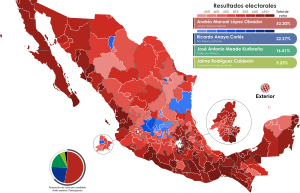| |||||||||||||||||||||||||||||||||||||||||||||||||||||||||||||||||||
|
| |||||||||||||||||||||||||||||||||||||||||||||||||||||||||||||||||||
Presidential election | |||||||||||||||||||||||||||||||||||||||||||||||||||||||||||||||||||
| Opinion polls | |||||||||||||||||||||||||||||||||||||||||||||||||||||||||||||||||||
| Turnout | 63.43% ( | ||||||||||||||||||||||||||||||||||||||||||||||||||||||||||||||||||
|---|---|---|---|---|---|---|---|---|---|---|---|---|---|---|---|---|---|---|---|---|---|---|---|---|---|---|---|---|---|---|---|---|---|---|---|---|---|---|---|---|---|---|---|---|---|---|---|---|---|---|---|---|---|---|---|---|---|---|---|---|---|---|---|---|---|---|---|
| |||||||||||||||||||||||||||||||||||||||||||||||||||||||||||||||||||
| |||||||||||||||||||||||||||||||||||||||||||||||||||||||||||||||||||
All 128 seats in the Senate of the Republic 65 seats needed for a majority | |||||||||||||||||||||||||||||||||||||||||||||||||||||||||||||||||||
This lists parties that won seats. See the complete results below. | |||||||||||||||||||||||||||||||||||||||||||||||||||||||||||||||||||
All 500 seats in the Chamber of Deputies 251 seats needed for a majority | |||||||||||||||||||||||||||||||||||||||||||||||||||||||||||||||||||
This lists parties that won seats. See the complete results below. | |||||||||||||||||||||||||||||||||||||||||||||||||||||||||||||||||||
 |
|---|
|
|
General elections were held in Mexico on 1 July 2018.[1] Voters elected a new President of Mexico to serve a six-year term,[2] 128 members of the Senate for a period of six years and 500 members of the Chamber of Deputies for a period of three years. It was one of the largest election days in Mexican history, with most of the nation's states holding state and local elections on the same day, including nine governorships, with over 3,400 positions subject to elections at all levels of government.[3] It was the most violent campaign Mexico has experienced in recent history, with 130 political figures killed since September 2017.[3]
The incumbent president Enrique Peña Nieto was not constitutionally eligible for a second term. Incumbent members of the legislature were term-limited, thus all members of Congress were newly elected. As a consequence of the political reform of 2014, the members of the legislature elected in this election will be the first allowed to run for reelection in subsequent elections. The National Electoral Institute (INE) officially declared the new process underway on 8 September 2017.
The presidential election was won, by a landslide margin of almost 31 points, by Andrés Manuel López Obrador of the National Regeneration Movement (MORENA), running as the candidate of the Juntos Haremos Historia alliance.[4] This was the first time a candidate won an outright majority (according to official vote counts) since 1988,[5] and the first time that a candidate not from the Institutional Revolutionary Party (PRI) or its predecessors has done so since the Mexican Revolution. Furthermore, it marked the first time that a coalition of political parties (excluding the PRI) supporting a single presidential candidate achieved majorities in the Senate and Chamber of Deputies. This election also represented the PRI's greatest electoral setback and the worst for a sitting Mexican administration since universal male suffrage was implemented in 1917.[a]
- ^ Electoral Calendar Archived 17 June 2018 at the Wayback Machine Senate of the Republic (in Spanish)
- ^ Redacción (23 April 2018). "Más allá del debate: corrupción y violencia sin control marcan agenda en la elección mexicana". Sin Embargo. Retrieved 1 July 2018.
Seis candidatos a la carrera para ocupar Los Pinos a partir del próximo primero de diciembre por un período de cinco años y 10 meses. (A partir de la Reforma Electora de 2014, el Presidente de los Estados Unidos Mexicanos tomará posesión el 1 de octubre de cada año empezando en 2024 por un período de seis años.)
- ^ a b Cite error: The named reference
ABC-Sveen-2018-07-02was invoked but never defined (see the help page). - ^ "Mexico election: López Obrador vows profound change after win". BBC News. 2 July 2018. Retrieved 2 July 2018.
- ^ Murray, Christine; Oré, Diego. "Mexican Lopez Obrador wins historic election landslide for left". Reuters. Retrieved 2 July 2018.
Cite error: There are <ref group=lower-alpha> tags or {{efn}} templates on this page, but the references will not show without a {{reflist|group=lower-alpha}} template or {{notelist}} template (see the help page).







